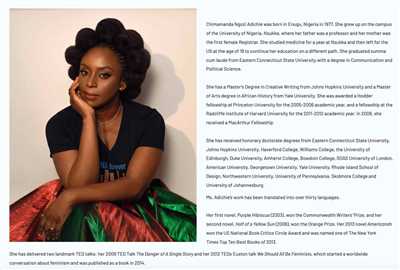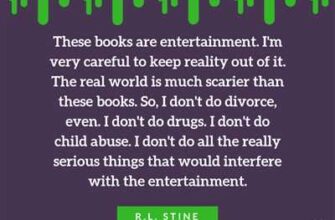
Writing an academic biography can be a challenging task, but it is an important skill that every student needs to master. Whether you are applying for a scholarship, presenting at a conference, or submitting a paper, adding a well-written biography can make a significant difference to your overall presentation. An academic biography showcases your accomplishments, interests, and background, while also giving your readers a glimpse into the person behind the work.
When writing an academic biography, it is essential to remember that you are not just listing your achievements or events in your life. Instead, you need to focus on making it a compelling and engaging story. One approach is to start with a short sentence or two that captures the essence of who you are and what you do. This sentence should serve as the title of your biography, and it should pique the reader’s interest to continue reading.
After the title, you can proceed to write a general overview of your academic journey. Start by providing some background information, such as the high school you attended or the degree you are currently pursuing. Then, highlight some notable achievements or papers you have published. For example, if you have presented at a conference or been involved in AI research, be sure to mention those events. This will show readers that you are actively engaged in your field and committed to your studies.
Next, focus on the main purpose of your biography. Are you applying for a scholarship? Are you introducing yourself as a guest speaker at an event? Think about the specific audience and tailor your biography accordingly. If it is a scholarship application, highlight any relevant achievements or experiences that demonstrate your commitment and potential. If you are presenting at a conference, mention your research focus and how it is inspired by previous work. By doing this, you will show your audience that you have done your research and are well-prepared for their event.
One key aspect of writing an academic biography is to ensure that you include both personal and professional details. While it is important to highlight your achievements, it is equally essential to let readers know a bit about you as a person. This could include your hobbies, interests, or any unique experiences that have shaped you. Remember, your biography should not be just a list of bullet points; it should paint a vivid picture of who you are as a student and an individual.
In conclusion, writing an academic biography is an important skill that every student should master. By following these steps, you can create a well-crafted and engaging biography that will leave a lasting impression on your readers. Remember, the key is to make it personal, relevant, and intriguing. So don’t just list your achievements; tell your story and let your personality shine through.
- How to Write an Interesting Biography
- What Is a Biographical Essay
- Examples of speakers’ bio
- Brandon Farbstein
- Nicole Redvers
- How to write a short professional bio
- Choose your voice
- Generate your professional bio with AI
- Choose your tone
- Start with your name and your current or most recent role
- Add any former titles and list relevant achievements
- Consider adding the “why” behind your story
- Close with some personal details if appropriate
- 5 Answers 5
- Video:
- Writing Advice from Neil Gaiman | Discover MasterClass | MasterClass
How to Write an Interesting Biography
Writing an interesting biography can be a challenging task, but with the right approach, it can be a rewarding opportunity to showcase your accomplishments and tell your story. Whether you are a student, an academic, or someone with an interesting background, a well-crafted biography can captivate readers and leave a lasting impression.
The first step in writing an interesting biography is to consider your audience. Think about who will be reading your bio and tailor it accordingly. If you are writing for a professional website or academic department, focus on your relevant experience and accomplishments in your field. If you are writing for a general audience or a personal website, you can be more creative and include personal anecdotes or experiences that highlight your personality and values.
Next, think about what makes your story unique. What sets you apart from others? Is it your research papers, your involvement in conference events, or your TEDx talk? Identify the key points that define your story and present them in a clear and concise manner. Avoid simply listing your achievements; instead, focus on the impact you have made and the lessons you have learned along the way.
When writing your bio, make sure to add a personal touch. Use a conversational tone and inject your own voice into the writing. This will help to engage readers and make your biography more relatable. Remember, the goal is to make a connection with the reader, so share enough information to provide a glimpse into your life and work, but don’t overwhelm with unnecessary details.
Consider adding some interesting facts or a fun anecdote to make your biography more memorable. For example, you could mention your current role or mention an interesting event that inspired your career path. You could also talk about the challenges you have overcome or the lessons you have learned through your experiences. This will help to humanize your story and add depth to your bio.
When it comes to the structure of your biography, start with a catchy title that captures the essence of your story. Follow this with a brief introduction that grabs the reader’s attention and sets the tone for the rest of the piece. Then, organize the main body of your bio into paragraphs, with each paragraph covering a different aspect of your life or work. This will make your biography more organized and easy to read.
Finally, don’t be afraid to revise and edit your biography multiple times. This will ensure that your writing is clear, concise, and error-free. Ask someone to read it and provide feedback, as a fresh set of eyes can often catch mistakes or suggest improvements. Remember, a well-written and interesting biography is a reflection of your hard work and accomplishments, so it’s worth putting in the effort to make it shine.
What Is a Biographical Essay
A biographical essay is a short account of a person’s life. It aims to tell the story of someone’s life, highlighting important events and important details that have shaped their life. A biographical essay could be written using multiple sentences or in bullet point format, depending on the writing style and the purpose of the essay.
Biographical essays are typically written by students as a part of their academic work, both in high school and in college. These essays are important because they provide a personal and detailed account of a person’s life, which can help the reader understand the person better and gain insights into their achievements, struggles, and the role they have played in society.
When writing a biographical essay, it is important to ensure that the information is accurate and relevant. The author should take into account the person’s current or recent health status, as well as any notable achievements or important events that have occurred in their life. The essay should also include interesting and engaging details about the person’s life, because this makes the essay more captivating and enjoyable to read.
Biographical essays can be about any person, from historical figures and famous individuals to everyday people who have made a significant impact in their community. The essays could also be about the speaker’s own life, using the first person point of view. In addition, it is important to mention the source of information, such as books, articles, interviews, or personal interviews with the person being written about.
One example of a biographical essay is “Why I Write,” written by George Orwell. This essay explores Orwell’s motivations for becoming a writer and delves into the personal and societal reasons behind his writing. Another example is the essay “Know Thyself” by Ravi Zacharias, in which the author reflects on his life journey and the importance of self-awareness.
In summary, a biographical essay is a written account of a person’s life. It should provide an accurate and engaging narrative, and include relevant and interesting details. Whether it is about a notable figure or about oneself, a biographical essay helps to tell a person’s life story and make it more accessible to others.
Examples of speakers’ bio
Brandon Redvers is an accomplished professor at Stanford University’s Department of Biology, where he has been teaching for over a decade. Apart from his teaching responsibilities, Brandon has also been actively involved in research, adding to the current knowledge in the field of health and biology. His work has been published in various academic journals, and he has presented his findings at numerous conferences.
Dr. Sarah Farbstein is a well-respected keynote speaker and thought leader in the field of psychology. With a Ph.D. in Clinical Psychology, she has dedicated her career to understanding and improving mental health. Sarah’s passion for helping others led her to develop innovative therapeutic techniques, which have been instrumental in shaping the field of psychotherapy. She is a sought-after speaker at conferences and has impacted the lives of many individuals through her inspiring talks.
Dr. Jane Smith is both an accomplished academic and a builder of communities. With a background in sociology, she has conducted extensive research on social dynamics within various populations. Jane’s work has focused on understanding the role of diversity and inclusion in community building, which has been of high importance in today’s globalized society. Her publications and presentations have made a notable impact on how communities are formed and sustained.
David Miller is a former student of Harvard University, where he achieved top grades and earned various academic achievements. Inspired by his own experience with writing essays, David went on to start a successful tutoring website that helps students excel in their writing. Through his online platform, David provides valuable writing tips and guidance, helping students to develop their skills and achieve academic success. His expertise in essay writing has been widely recognized, and he continues to make a difference in the lives of students.
Emily Williams is a renowned public speaker and expert in event planning. With over 10 years of experience in the industry, Emily has organized and executed numerous high-profile events, ranging from corporate conferences to large-scale public gatherings. Her attention to detail and ability to bring diverse elements together make her events memorable and impactful. Emily’s expertise in event planning has been sought after by many organizations, and her name is synonymous with successful and well-organized events.
Brandon Farbstein
Brandon Farbstein is a well-known author and speaker. He has inspired and motivated people all around the globe to overcome their challenges and live their best lives. At a young age, Brandon found his purpose in life when he was diagnosed with a rare form of dwarfism called Kniest dysplasia. Instead of letting his condition define him, he decided to make a difference and help others embrace their uniqueness.
Brandon’s journey began when he was just 15 years old. He delivered his first TEDx talk, where he shared his personal story and the lessons he learned along the way. Since then, he has been a sought-after speaker, captivating audiences with his powerful message of resilience and self-acceptance.
In addition to his speaking engagements, Brandon has also been a dedicated advocate for mental health and wellness. He understands the importance of taking care of oneself, both physically and emotionally. Through his website, he provides resources and tools to help others improve their overall well-being.
Brandon’s achievements go beyond his speaking career. As an author, he has written multiple books that aim to empower and inspire readers. His most recent book, “Redvers’ Growing Up Big,” tells the story of a young person finding their place in the world and embracing their differences.
When it comes to writing academic papers, Brandon knows the process very well. As a student himself, he understands the challenges of researching, organizing ideas, and crafting a strong argument. He believes that every essay should have a clear purpose and a compelling tone to engage the reader.
In his department, Brandon often helps fellow students write their papers. He understands the importance of providing relevant and appropriate answers to essay questions. He also knows how to use facts and evidence effectively to support arguments.
Brandon believes that everyone has a story worth telling. Whether it’s a personal narrative or an analytical essay, he encourages others to embrace their unique perspectives and share their thoughts with the world. He believes that writing is a powerful tool for self-expression and making a difference in the lives of others.
Brandon’s own life is a testament to the power of storytelling. He believes that by sharing our experiences and insights, we can connect with others on a deeper level and create a more inclusive and understanding society.
Brandon is currently in his senior year of high school, and he plans to continue his advocacy work and speaking engagements in college. He has already received acceptance letters from multiple prestigious universities and is excited to embark on the next chapter of his journey.
In conclusion, Brandon Farbstein is an inspiring individual who has overcome his own challenges and dedicated his life to helping others. Through his speaking engagements, writing, and personal advocacy, he has touched the lives of many people around the world. His story serves as a reminder that no matter what we face in life, we can always find purpose and make a positive impact.
Nicole Redvers
Nicole Redvers is a highly accomplished and inspiring individual with a notable story and a strong academic background.
In her early life, Nicole was always driven and had a passion for learning. She excelled in school and was committed to her studies. This dedication paid off as she graduated with top honors, making her a very impressive candidate.
After completing her high school education, Nicole went on to pursue a career in the medical field. She obtained her medical degree and became a professional healthcare provider, specializing in Indigenous health and the holistic approach to wellness.
One of the most notable achievements in Nicole’s career is her work as a TEDx speaker. She has been invited to share her insights and knowledge on various stages and has inspired many with her powerful and passionate voice.
Currently, Nicole is involved in multiple academic programs, conducting research and sharing her findings with others. She is dedicated to making a difference in the lives of Indigenous communities and is continuously working towards improving their overall health and well-being.
When it comes to writing an academic biography, it is important to choose the most relevant and appropriate information to include. You should focus on the person’s background, achievements, and involvement in specific programs or events.
In Nicole Redvers’ case, her background in the medical field and her work in Indigenous health make her an interesting and qualified candidate. Her involvement in TEDx talks and her dedication to making a positive impact set her apart from others.
To write an effective academic biography, you should ensure that the flow of information is logical and easy to follow. You should add relevant facts and examples to support your statements and create a strong overall narrative.
Overall, Nicole Redvers is a truly inspiring individual who has worked hard to achieve her goals and make a difference in the world. Her story and accomplishments are a testament to her dedication and passion, and we can all be inspired by her example.
How to write a short professional bio

Writing a short professional bio is an essential skill for anyone looking to establish themselves in their field or present themselves to potential employers, clients, or colleagues. A well-crafted bio can provide a concise and compelling overview of your professional background, achievements, and interests.
When writing a short professional bio, it’s important to keep in mind the purpose of the bio and the audience it’s intended for. Are you writing a bio for a conference speaker role, a job application, or a personal website? These factors will shape the style and content of your bio.
A short professional bio should start with your name and current title, as well as a brief description of your role and responsibilities. It’s also a good idea to mention any notable achievements or awards you’ve received, as well as any organizations you are actively involved with.
If you have multiple roles or areas of expertise, choose the most relevant ones to include in your bio. Keep in mind that the bio should be concise and to the point, so it’s important to prioritize the most relevant information.
In addition to professional achievements, you can also include a personal touch to make your bio more human and relatable. For example, if you have an interesting hobby or have traveled to different countries, you can mention these details to add some personality to your bio.
To make your bio more engaging, consider adding a short anecdote or story that highlights your professional journey or showcases your unique perspective. This can help to hook the reader and make your bio more memorable.
If you’re writing a bio for a specific event or conference, make sure to mention any previous speaking engagements or notable events you’ve participated in. This can help establish your credibility and expertise in your field.
When writing your bio, don’t forget to proofread carefully for any grammatical or spelling errors. A well-written and error-free bio will reflect positively on your professionalism and attention to detail.
If you’re struggling to write your bio, looking at examples of other professional biographies can be helpful. Take note of the structure, tone, and content of these bios, and consider how you can adapt them to fit your own story and goals.
Remember, your bio is an opportunity to showcase your strengths and unique voice. Take the time to develop a bio that accurately represents who you are as a professional and highlights your achievements.
By following these tips, you can write a short professional bio that effectively communicates your expertise, experience, and personal brand.
Choose your voice
When writing your academic biography, it is important to choose the right voice for your piece. The voice you select will depend on the purpose of your bio and the audience you are targeting.
If you are writing a personal biography, you should aim to use a first-person voice. This will help you connect with the reader on a more personal level and give your biography a more intimate feel. By using “I” or “we” in your sentences, you can demand attention and ensure that your story is relatable.
On the other hand, if you are writing a biography for someone else, such as a former teacher or a colleague, you would want to use a third-person voice. This allows you to take a step back and be more objective in the information you provide. By using the person’s name or referring to them as “he” or “she,” you can give a more professional tone to your biography.
Adding a touch of creativity to your biography can also make it more interesting. You can use descriptive language to paint a picture of the person’s life or experiences. For example, instead of simply listing achievements, you could write a short story that highlights their high points and the events that led them there. By using a narrative voice, you can engage the reader and make your biography more memorable.
While it is important to be creative and engage the reader, it is also essential to stay within the bounds of professionalism. Avoid using slang or informal language, as this can detract from the credibility of your work. Instead, opt for clear and concise sentences that convey your information effectively.
Remember, the voice you choose should match the tone and purpose of your academic biography. Whether you are writing about yourself or someone else, be true to yourself and the information you are presenting. By using the right voice, you can create a compelling biography that captures the essence of the person and their achievements.
Generate your professional bio with AI
Writing a professional bio can be a challenging task, especially for busy individuals who do not have the time to craft a well-written biography. However, with the help of AI technology, generating a professional bio has never been easier.
AI-powered tools, like OpenAI’s ChatGPT, can assist you in creating a professional biography that highlights your achievements, education, and relevant experiences. By using AI, you can ensure that your bio presents the most important details about yourself in a clear and concise manner.
To begin, first gather all the necessary information about your academic and professional life. Think about the relevant achievements, notable events, and experiences that shaped your career. Consider including any awards, publications, or speaking engagements that you have been a part of, such as TEDx talks or conferences.
Start your bio with a catchy title that captures the essence of your story or work. This will grab the attention of the readers and make them want to know more about you. Then, choose a tone that aligns with your personal brand and the image you wish to portray.
When writing your bio, it is crucial to ensure that it flows well and is easy to read. Use bullet points or make a list to break down the information into digestible chunks. Make sure to add relevant details that set you apart from others.
For example, if you are an academic, mention the school where you have studied and your areas of expertise. If you are a wellness expert, describe your approach to health and the methods you use to help others. If you are a student, talk about your current course of study and any significant projects you have worked on.
Using AI tools can help you in the process of developing your biography. They can generate multiple versions of your bio and assist you in choosing the one that best represents you. Additionally, AI can help with grammar and formatting to ensure that your bio is error-free and easy to read.
In conclusion, generating your professional bio using AI technology can be a time-saving and efficient process. With the help of AI tools like ChatGPT, you can create a compelling biography that showcases your achievements, skills, and experiences. So, why wait? Start writing your bio now and make sure to use AI to make it stand out.
Choose your tone
When writing an academic biography, it’s important to choose the right tone that fits your purpose and audience. The tone you select can vary depending on whether you are writing for a formal academic setting or a more casual online platform.
If you are writing for a professional or academic audience, such as for a research publication or a university department website, it’s important to maintain a formal and objective tone. Stick to the third-person voice and use a respectful and informative tone. For example:
“Brandon Redvers is currently a doctoral student in the Department of English Literature at Farbstein University. His research focuses on examining the influence of postmodernist literature on contemporary feminist writing. In his previous academic work, Brandon has published several articles on this topic in notable journals.”
On the other hand, if you are writing for an online platform or a personal blog, you have more flexibility in choosing a tone. You can add a personal touch and use the first-person voice to create a more conversational tone. For example:
“Hi, I’m Brandon Redvers, a doctoral student in English Literature at Farbstein University. I’m currently exploring the fascinating intersection between postmodernist literature and contemporary feminist writing. In my academic journey, I’ve had the privilege of publishing several articles on this topic in notable journals. I’m excited to share my insights and engage in discussions with fellow literature enthusiasts!”
When deciding on the tone for your academic biography, consider the purpose of the piece and the audience you are targeting. A more formal tone is typically appropriate for academic biographies, while a more personal and engaging tone can be used for online platforms or personal websites. Each situation is unique, so it’s important to tailor your tone accordingly.
Start with your name and your current or most recent role
My name is Brandon Farbstein and I am an author and motivational speaker. I am passionate about making a positive impact on the lives of others and inspiring them to overcome their challenges. As an academic speaker, I have had the opportunity to speak at conferences and events, including TEDx, where I have shared my story and insights on various topics.
In my role as an author, I have published several books, including my autobiography and an essay collection. My writing focuses on resilient living and the power of mindset. I believe that our biggest obstacles can serve as our greatest opportunities for growth and transformation.
Previously, I have been involved in high school and college level education. I have graded papers and worked closely with students to help them excel in their academic pursuits. I understand the importance of a well-written biography and how it can enhance one’s professional image.
When writing your academic biography, it is important to consider your audience and the purpose of the biography. Think about what you want others to know about you and your achievements. Choose short and relevant facts that will make you stand out. Use bullet points to list notable accomplishments and include examples or specific details to support your claims.
Remember to keep the flow of your biography coherent and engaging. Avoid unnecessary information and focus on what is most important. Consider the “why” behind your choices and write in a way that shows your passion and dedication to your field of study or work.
One important tip to keep in mind is to ensure that your biography is up to date. As you progress in your career, add new accomplishments and experiences to your biography. Update your website or professional profiles regularly so that others can see your recent achievements.
Writing an academic biography can be a challenging process, but with practice and attention to detail, you can create a compelling biography that highlights your skills, achievements, and passion for your work.
Consider looking at other speakers’ biographies for inspiration and ideas. See how they structure their biographies and what information they choose to include. Take note of the tone and language used and adapt it to fit your own style and situation.
In conclusion, starting your academic biography with your name and your current or most recent role is crucial. It sets the tone for the rest of your biography and gives readers an immediate understanding of who you are and what you do. Make sure to tailor your biography to your audience and purpose, include relevant facts and accomplishments, and keep it engaging and concise. By following these guidelines, you’ll be able to write a professional and impressive academic biography.
Add any former titles and list relevant achievements
When writing your academic biography, it’s important to include any former titles you may have held and list any relevant achievements. This will help give readers a better understanding of your academic background and accomplishments.
For example, if you were previously a high school student, you might mention any leadership roles you held, such as being the president of a club or being a member of the student council. You could also highlight any notable achievements, such as winning a scholarship or being recognized for your academic performance.
If you are currently an academic, you’ll want to focus on your current position and any achievements or awards you have received in your field. For instance, if you are a professor, you might mention any research grants you have obtained or any publications you have contributed to.
Adding this information will give others a glimpse into your life and provide them with a better understanding of your qualifications and expertise. Moreover, it will lend credibility to your biography and showcase your dedication to your academic pursuits and accomplishments.
Remember, the tone of your academic biography should be professional and formal. Avoid using overly personal or informal language. While it’s important to share relevant information about yourself, you should strive to ensure that it aligns with the purpose of your biography.
Developing a well-structured and engaging academic biography is essential, as it plays a crucial role in introducing yourself to others. Whether it’s for a website, conference program, or essay, your biography should generate interest and provide readers with a clear understanding of your academic background and achievements.
Consider adding the “why” behind your story

When writing your academic biography, it is essential to include not only the details of your life and achievements but also the underlying motivation or purpose behind your journey. Adding the “why” behind your story gives your audience a deeper understanding of who you are as a person and what drives you.
One of the key components of a powerful academic biography is the ability to paint a picture of your life story and make it flow seamlessly. Each event and experience should be carefully developed to provide insight into how you have grown and evolved over time.
If you are currently a speaker or have been involved in any speaking engagements, it is important to highlight why you chose to share your story. What motivated you to step onto that stage and share a part of your life with others? Explaining the “why” behind your speaking engagements can help the reader connect with your experiences on a deeper level.
Additionally, if you have faced challenges or overcome difficult situations throughout your life, you could consider adding a short section that explains why you don’t let those circumstances define you. By discussing the “why” behind your resilience and determination, you show others that they too can overcome obstacles and thrive.
For academic achievements, it is important to highlight the purpose behind your work. Whether it’s the pursuit of knowledge, a desire to make a difference in your field, or a personal passion for the subject matter, explaining the “why” behind your academic accomplishments helps the reader understand your dedication and commitment.
When choosing which events and experiences to include in your biography, aim for a balance between personal and academic achievements. Highlighting both demonstrates that you are a well-rounded individual who is not solely defined by your academic pursuits.
Adding the “why” behind your story is particularly important if you are writing an academic biography for a program or department application. Admissions committees often receive multiple personal biographies, and explaining the purpose and motivation behind your academic journey sets you apart from the rest.
Finally, if you have been a speaker at a TEDx event or any other speaking engagements, provide some insight into what inspired you to take on the challenge. How did you become involved with the program, and what are your goals as a speaker? This will give readers a better understanding of your aspirations and the impact you want to make.
In conclusion, while it is crucial to provide the necessary details and achievements in your academic biography, don’t forget to add the “why” behind your story. By including the motivations and purposes behind your experiences, you create a more engaging and relatable biography that resonates with others.
Close with some personal details if appropriate
Adding some personal details to your academic biography can help to make it more engaging and provide a glimpse into your personality. If you have any notable achievements or interesting facts about yourself that are relevant to your academic career, this is the place to include them.
For example, you could mention that you have been actively involved in your department’s student council, or that you were inspired to pursue your current research because of a TEDx talk you attended. You could also list any papers or articles you have written, or any conferences you have spoken at.
When adding personal details, it’s important to ensure that they are relevant and purposeful. Don’t just add information for the sake of making your biography longer – make sure it adds value to the overall narrative you are presenting.
Here’s an example of how you could develop this section:
| Name: | Your name |
| Highest Grade: | The grade you achieved |
| Former School: | The name of your former school |
| Current Program: | The program you are currently enrolled in |
| Inspired By: | What or who inspired you to pursue your academic path |
| Notable Achievements: | List any noteworthy achievements, such as awards or scholarships |
| Interesting Facts: | Share any interesting facts about yourself that are relevant to your academic journey |
By following these guidelines, you can close your academic biography with a personal touch that will leave a lasting impression.
5 Answers 5
If you’re wondering how to write an academic biography, here are 5 answers to help guide your work.
- Start with the basics: Begin your biography by stating your name, current role, and relevant academic titles and achievements. For example, “My name is Brandon Farbstein, and I am a former TEDx speaker and author.” This sentence sets the tone for the rest of your biography and gives readers an immediate understanding of who you are and what you’ve achieved.
- Add personal information: To make your biography more interesting and relatable, include a personal story or anecdote that inspired your academic journey. For example, you could talk about a specific event, a challenging experience, or a lifelong passion that led you to pursue your field of study.
- Show your academic work: List some of your notable essays, publications, or research projects to demonstrate your expertise in the field. You can add bullet points or create a numbered list to showcase the most important works you’ve written.
- Highlight your speaking engagements: If you’ve been a speaker at conferences, symposiums, or other academic events, mention them in your biography. This shows that you actively engage with the academic community and have valuable insights to share.
- Include your current role and department: Make sure to mention your current position and department to give readers a clear idea of where you are in your academic journey. For example, you might say, “I am currently a professor in the Department of Health Sciences at XYZ University.”
By following these guidelines, you will be able to create a well-rounded academic biography that effectively showcases your achievements and provides readers with a glimpse into your life and work.








